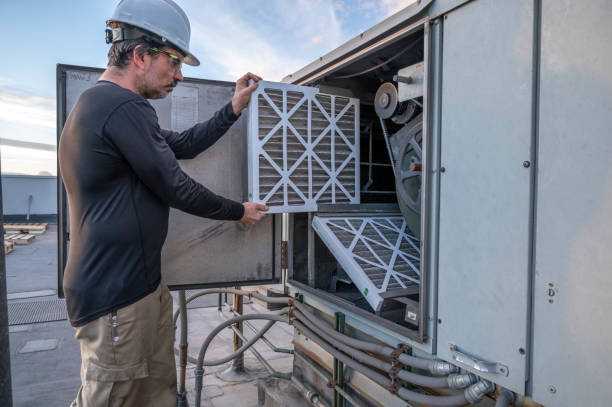Which Filter Is Best For Your Air Conditioner, HEPA Or MERV?
If you have an air conditioner, you understand the importance of having a filter in place to help keep the unit clean and running efficiently. But with all of the different types and sizes of filters on the market, it can be hard to decide which one is right for your air conditioning Central Coast unit. In this article, we'll compare HEPA and MERV filters to help you decide which one is best for your needs.
HEPA, or "high-efficiency particulate air" filters are a type of mechanical air filter; they work by forcing air through a mesh that traps particles such as dust, pollen, mould spores, and pet dander. HEPA filters are commonly used in hospitals and other environments where clean air is essential, but they can also be used in homes to improve indoor air quality.
While standard mechanical filters can remove some large particles from the air, they typically have difficulty trapping smaller particles; this is where HEPA filters excel. A true HEPA filter must be able to remove at least 99.97% of particles that are 0.3 microns in size; for comparison, a human hair is about 100 microns in diameter.
In addition to their small particle removal efficiency, HEPA filters also have the advantage of not producing ozone or other harmful byproducts like some other air purification technologies. This makes them a safe choice for people with asthma or other respiratory conditions.
The MERV filter is a type of air conditioner filter that is designed to remove contaminants from the air. These filters are typically used in commercial and industrial settings, but they can also be used in home air conditioning systems. MERV stands for "Minimum Efficiency Reporting Value" and is a rating system that is used to measure the effectiveness of an air filter. The higher the MERV rating, the more efficient the filter is at removing contaminants from the air.
There are a variety of different types of MERV filters available on the market, so it is important to choose one that is appropriate for your specific needs. In general, higher-rated filters will be more expensive than lower-rated ones, but they will also provide better protection against airborne contaminants. When selecting a MERV filter, it is important to consider the size of your air conditioner and the specific needs of your home or business.
HEPA filters are designed to trap small particles, such as dust and pollen. They are very effective at doing this, but they can also restrict airflow. This can cause your air conditioner to work harder and use more energy.
MERV filters are designed to trap larger particles, such as mould spores and pet dander. They are not as effective at trapping small particles, but they allow better airflow. This means that your air conditioner won’t have to work as hard, and it will use less energy.
MERV filters are also effective at removing airborne particles, but they are not as efficient as HEPA filters. MERV filters can remove anywhere from 20% to 95% of particles that are 0.3 microns in size or larger. The percentage of particle removal depends on the specific MERV rating of the filter.
HEPA filters are extremely effective at removing contaminants from the air, including dust, pollen, and pet dander. However, can be more expensive than other types of filters, and they may need to be replaced more often. In addition, HEPA filters can sometimes make noise as they work to remove contaminants from the air.
MERV filters are not as effective at removing smaller particles, such as viruses and bacteria, but they are typically less expensive than HEPA filters, and they can last longer before needing to be replaced. In addition, MERV filters usually don't make noise when they're in use.
So, which type of filter is best for your air conditioner - HEPA or MERV? Ultimately, the decision comes down to your specific needs and preferences. If you have questions about this topic, get in touch with a reputable service provider for professional advice.

